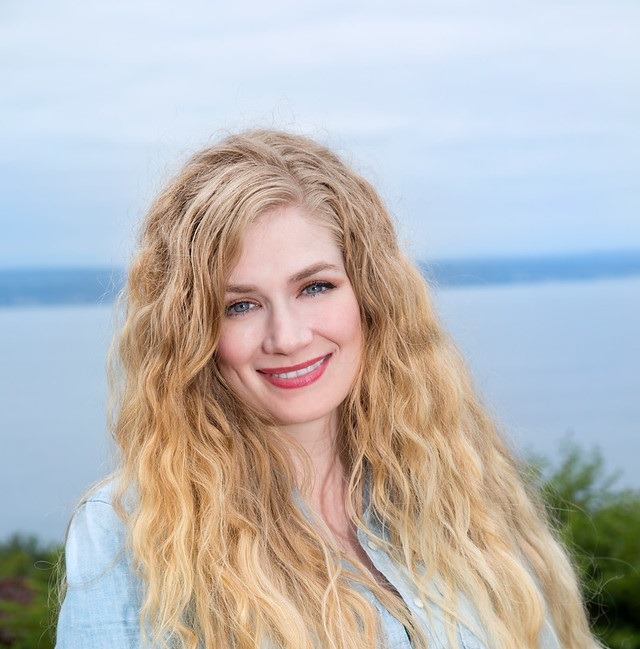
How veterans shape the work Community Transit does every day

Today marks Veterans Day, our nation’s federal holiday when we honor military veterans of the United States Armed Forces.
“On this day, we honor, thank, and respect those who have selflessly dedicated themselves to protecting others and our country," said Community Transit CEO Ric Ilgenfritz. “Their commitment, courage, and resilience have given us the gift of peace, security, and freedom.”
At Community Transit, 11.2% of our employees are veterans (nationally, veterans make up about 7% of the adult population). We are committed to hiring people who reflect the experiences and identities of the people we serve, including military veterans, veterans with disabilities, and transitioning military personnel. In honor of Veterans Day, we asked some veteran employees about their experiences and life after serving in the military.

A commitment to service
Army veteran and Deputy Director of Transportation James “Jim” Williams says he is thankful for his team and that he gets to help people through his work at Community Transit.“I saw a high level of dedication and commitment to service from the soldiers I served with overseas,” he says. “I saw the same high level of dedication and commitment to service from the staff and coach operators here at Community Transit while we operated during the pandemic.”
A commitment to helping others was also what first drew him to military service. Williams enlisted in the ROTC program in October 2001, shortly after 9/11. It was the beginning of a military career that would include two deployments to Iraq.
“Many of the people who serve in the military are motivated through a desire to help people, a desire to make an impact in their community,” says Williams. “I wanted to serve my country. I wanted to make a difference in the world. Today, I get to do that at a local level. I find fulfillment when I see the work we have done — when I see a bus on the road.”
Williams encourages veterans looking for a career to consider applying to Community Transit.
“If you serve and you’re a veteran, it doesn’t matter what your military occupation was; I am sure there is a job for you here.”
The skills to succeed
Bus Driver Robert Gaines found a career at Community Transit after retiring from the military and law enforcement. Gaines says his military service — which includes service in both the Army and Marines — helped prepare him for the work he does today.
Gaines says the independence he learned through his service has helped him throughout his career and helped him appreciate the autonomy he has as a bus driver.
“One example is the regimented time structure that the military teaches,” he says. “The other thing is independence. You don’t have that supervisor standing behind you, telling you ‘you need to do this, you need to do that,’” says Gaines.
Gaines and Williams say that a supportive and collaborative work culture plays a big role in the fulfillment they find at Community Transit.
“I personally want to be there for any vet,” says Williams. “Because of some of the experiences veterans have had, we have a higher chance of struggling with some things, such as suicide and mental health. If you’re a vet here at Community Transit, you aren’t alone. We are here to support each other at work and home.”
A culture of caring
.jpg?sfvrsn=7c9e757e_1)
Veteran Kwani Chin has been working as a recruiter for Community Transit for five weeks. She joined the Navy when she was a student at the University of Hawaii and served for four years.
“One takeaway from my journey as a veteran is empathy. Taking the time to learn about a person and putting yourself in their shoes,” says Chin. “This has helped me redirect my energies when faced with a difficult situation and has informed my decision-making skills.”
Chin’s education and career journey has included medical anthropology, global health, community health education, and her current role as a recruiter. She says the common thread for what inspires her is what she learns from people and their stories.
“The best part of my job is connecting with candidates and with the communities where we live and serve, learning more about them and hearing their stories. I love storytelling — as an indigenous Pasifika woman, storytelling is a crucial element in our culture, and I want to be able to use this to help shape, strengthen, and inform the work we do.”
Chin encourages veterans seeking a supportive work culture to apply at Community Transit.
“There is support here if you need it or want it. There is also an opportunity to connect with people who truly care about the agency's mission,” she says. “People here value the work that they do.”
Community Transit has programs, events, and benefits to help veteran candidates and employees, including additional paid time off for active-duty employees. We’re hiring for many roles — including bus drivers, mechanics, and administrative staff. Want to learn more? Veterans are encouraged to explore career opportunities on our careers pages at communitytransit.org/jobs.
Top Image: James Williams is pictured in uniform during his time serving in the U.S. Army.
Middle video: Bus Driver and Veteran Robert Gaines shares his thoughts on serving his community as a bus driver.
Bottom image: Recruiter Kwani Chin says her experience serving in the Navy helped grow her empathy for others.
